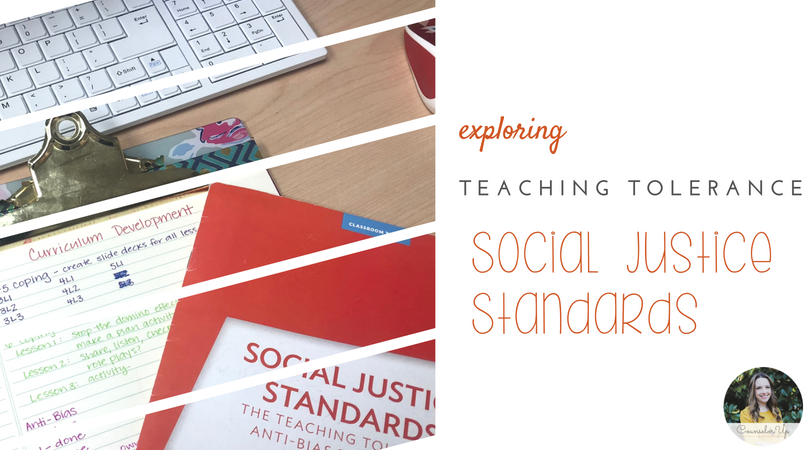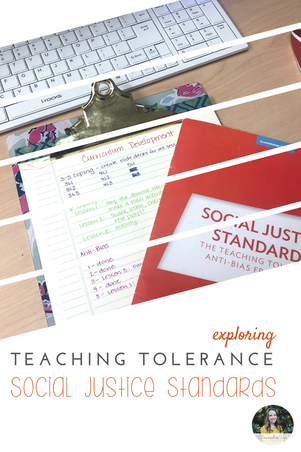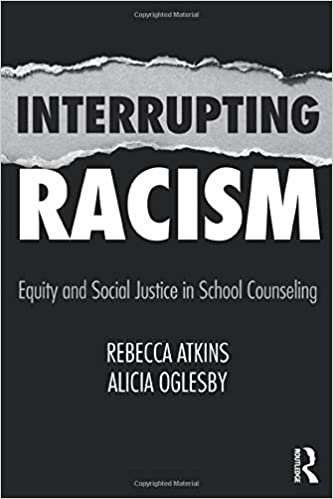Teaching Tolerance Social Justice Standards
Identity 3: Students will recognize that people’s multiple identities interact and create unique and complex individuals.
- K-2: I know that all my group identities are part of me—but that I am always ALL me.
- 3-5: I know that all my group identities are part of who I am, but none of them fully describes me and this is true for other people too.
- 6-8: I know that overlapping identities combine to make me who I am and that none of my group identities on their own fully defines me or any other person.
- 9-12: I know that all my group identities and the intersection of those identities create unique aspects of who I am and that this is true for other people too.
In designing our lessons, we tried to concentrate on identity and diversity first and then move into justice and action. We felt it was important for kids to understand who they are and who others are before thinking about how differences effect some people. School counselors do a pretty great job of helping students with identity and diversity. Some programs really focus on action but few, I think, focus on Justice. Let's look at a progression through the justice outcomes:
Justice 14: Students will recognize that power and privilege influence relationships on interpersonal, intergroup and institutional levels and consider how they have been affected by those dynamics.
- K-2: I know that life is easier for some people and harder for others and the reasons for that are not always fair.
- 3-5: I know that life is easier for some people and harder for others based on who they are and where they were born.
- 6-8: I know that all people (including myself ) have certain advantages and disadvantages in society based on who they are and where they were born.
- 9-12: I am aware of the advantages and disadvantages I have in society because of my membership in different identity groups, and I know how this has affected my life.
Cue the record stopping and crickets. This is a whole new world for many. We don't talk about this stuff and it might bring up uncomfortable feelings for you. More importantly, what might parents say?!?! Take a deep breath, you got this.
Reflection
Choose one anti-bias standard or skill that you want to implement in the upcoming school year and make it happen! Tell me below how you are implementing anti-bias social emotional learning for your students.










